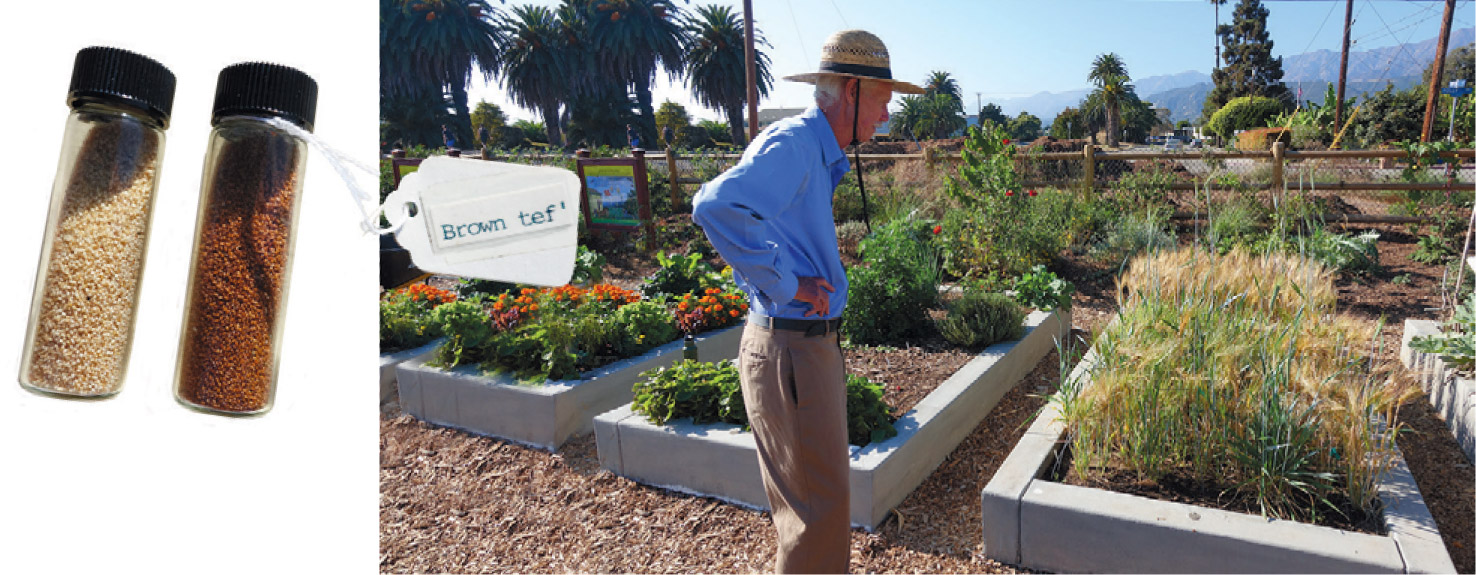Planting The Idea of Preserving Seeds
“Seeds are magic,” says seed guru Lorenz Schaller, repeating the idea for emphasis. Schaller is at a Carpinteria community garden, standing near a table of his published books on seed crops.
Since leaving what he calls “high science” research at Caltech in the 1970s and moving to Ojai, Schaller founded the nonprofit The Kusa Seed Society and has gone on to publish a shelf of books on ancient grains and the societies that evolved around them, while looking for ways to bring lesser-known grains to market.
While supporting himself as a commercial gardener, he continues to store samples of little-known ancient grains such as t’ef (also spelled tef and teff) from North Africa. He hopes to find support for his “seed sanctuary,” to keep these less-familiar crops vital for generations to come, and a property on which he can plant out and harvest ancient grains without fear of contamination by hybrids or genetically modified organisms.
“Seeds can’t be saved indefinitely,” Schaller points out. “They have to be regenerated, planted out and harvested.”
“I want the nonprofit to be stable over time,” he adds. “I need a protected piece of property where the seed crop can be regrown with care. It doesn’t have to be a grand effort, just a place to start.”
Schaller is so dedicated because he believes humanity depends on the vitality of the seed grains we eat. As we denature and hybridize those ancient seeds, he believes, we imperil our health and vitality. For Schaller, these forgotten plant heroes include familiar grains such as corn, rice and wheat, but also the ancient grains we tend to overlook, such as sunflowers, millet, bulgur and lentils, not to mention the rediscovered so-called “superfoods” such as quinoa and amaranth from South America, and tsampa from the Himalayas.
By honoring ancient grains—carefully selected and tended by ancient peoples, for whom seeds were and remain sacred—we honor the plants and the people who raised them, he says.
The Kusa Seed Society
info@ancientcerealgrains.org
AncientCerealGrains.org





